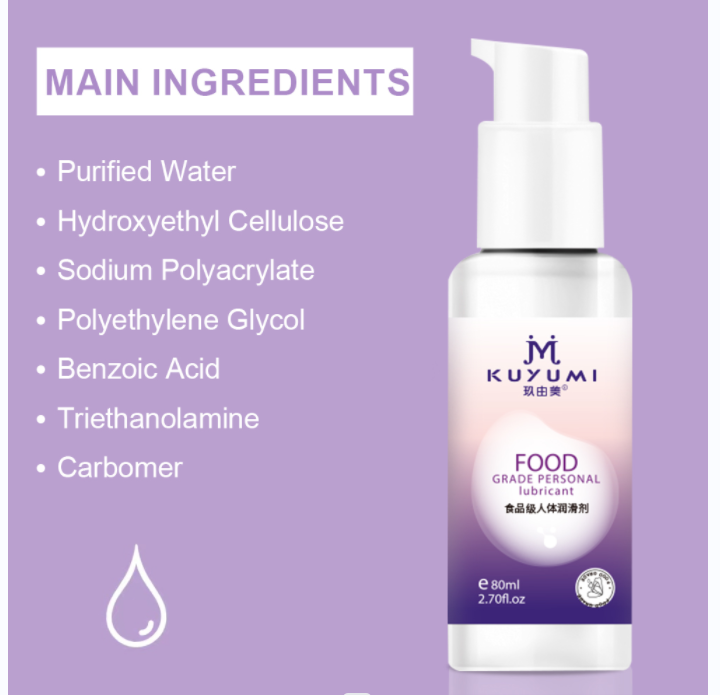Personal lubricants are commonly used for sexual activities, including intercourse and masturbation, to reduce friction and enhance pleasure. However, when selecting a personal lubricant, it is important to pay special attention to its ingredients, as some of them may have negative effects on the body, such as glycerin.
Glycerin is a common ingredient in lubricants and has excellent lubricating effects, reducing friction between sexual organs and enhancing sexual experiences. However, glycerin also has some negative aspects, especially for female users. Here are some reasons why glycerin is not suitable as an ingredient in personal lubricants:
Raises vaginal pH levels: Glycerin is a sugar alcohol that has permeability and can allow moisture to enter the vagina. However, it can also raise the pH level in the vagina, disrupting the acidic balance and increasing the risk of bacterial infections.
Irritates bacteria: Glycerin can stimulate bacteria in the vagina, increasing the risk of bacterial infections. Therefore, using lubricants that contain glycerin can make it easier for bacterial infections to occur.

Causes dryness: While the permeability of glycerin can help the vagina absorb moisture, long-term use of lubricants containing glycerin can cause the skin on the surface of the vagina to lose moisture, resulting in dryness and discomfort.
Therefore, it is best for female users to choose personal lubricants that do not contain glycerin. If lubricants with glycerin are desired, it is recommended to use them in small amounts and clean them promptly after use to minimize any adverse effects on the vagina. Of course, the best choice is to use a lubricant without glycerin to protect vaginal health and enhance sexual quality.
In summary, although glycerin is a good ingredient in lubricants, its use in personal lubricants needs to be carefully considered, especially for female users. It is best to choose personal lubricants without glycerin to avoid unnecessary health risks.